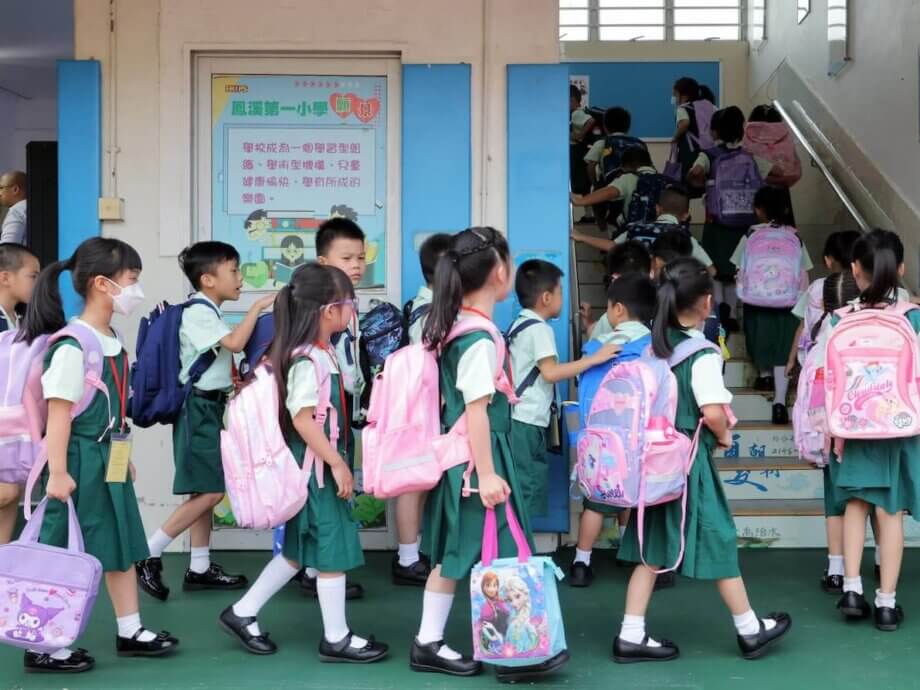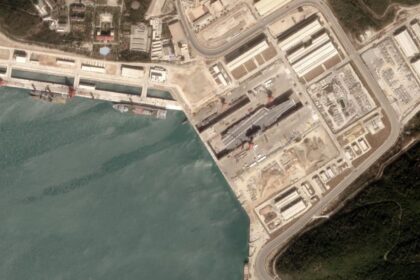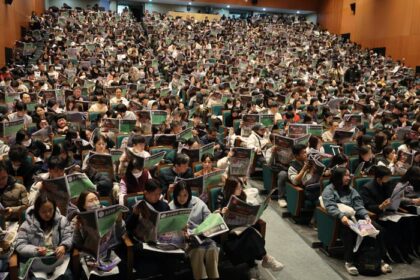Introduction: A New Era for English Education in Hong Kong
Hong Kong’s Education Bureau has unveiled a revised curriculum guide for English-language teaching in primary schools, marking a significant shift in the city’s educational landscape. The new guide, released in 2024, places a strong emphasis on patriotic and national security education, reflecting broader policy changes in the wake of recent social and political developments. This article explores the motivations behind these changes, the specifics of the new curriculum, reactions from educators, and the broader implications for Hong Kong’s youth and society.
- Introduction: A New Era for English Education in Hong Kong
- What Has Changed in the English Curriculum?
- Why the Shift? The Political and Social Context
- How Is National Security Taught in English Lessons?
- Reactions from Educators and the Public
- Broader Educational Reforms: From Liberal Studies to Citizenship
- Implementation Challenges and Support Measures
- Implications for Youth Identity and Society
- In Summary
What Has Changed in the English Curriculum?
The latest “English Language Education Key Learning Area Curriculum Guide for Primary One to Primary Six” replaces the previous 2017 edition and stands as a dedicated guide for primary schools. While the overall framework for English language education remains intact, the updated guide introduces substantial changes in four key areas: values education, assessment literacy, e-learning and information literacy, and reading.
Most notably, the values education component has been overhauled. The previous guide encouraged English teachers to let students explore a range of value-laden topics, including human rights, equal opportunities, sustainability, and responsibilities. In the new guide, these have been replaced with themes such as respect for others, animal rights and protection, and environmental protection. The explicit mention of human rights and equal opportunities has been removed, and references to the rule of law, cultural inclusion, respect for pluralism, mutual respect, and acceptance are no longer present.
Instead, the curriculum now highlights the importance of national education, constitution and Basic Law education, and national security education. The stated aim is to help students develop into “good nationals who have a sense of national identity, respect the rule of law and abide by the law, hence safeguarding national security.”
Why the Shift? The Political and Social Context
The introduction of national security education (NSE) into Hong Kong’s school curriculum is a direct response to the city’s recent history. Following the 2019 social unrest and the subsequent implementation of the National Security Law by Beijing, authorities have sought to reinforce patriotism and national identity among young people. The Education Bureau’s move to update the English curriculum is part of a broader strategy to align education with these national priorities.
According to the Education Bureau, it is the constitutional duty of the Hong Kong Special Administrative Region (HKSAR) to safeguard national security. The Bureau has been actively promoting NSE to enhance students’ awareness of safeguarding national security and law-abidingness. The 2021 release of the Curriculum Framework of National Security Education in Hong Kong and its subsequent updates in 2025 provide the foundation for these changes across multiple subjects, including English.
How Is National Security Taught in English Lessons?
To support the integration of national security themes into English lessons, the Education Bureau has developed specialized resource kits for primary and secondary levels. The English Language Resource Kit on National Security Education at the Primary Level features four main learning topics: cultural security, ecological security, food security, and outer space security. Through reading, viewing, and various English activities, students learn about:
- The folk dances of different ethnic groups in China
- Achievements in the country’s aerospace technology
- Efforts to conserve endangered wildlife and stabilize food supply
- Ways to contribute to national security in daily life
For example, one teaching activity involves reading about Yuan Longping, the “father of hybrid rice,” to understand his contributions to food security and national development. Such lessons are designed to cultivate a sense of belonging to the country and enhance students’ awareness of safeguarding national security.
Teachers are also reminded to use official photos, rather than drawings, of the national and Hong Kong flags and emblems in their teaching resources, underscoring the importance of accuracy and respect for national symbols.
Reactions from Educators and the Public
The curriculum changes have elicited a range of responses from educators. Veteran English teacher Pauline Chow Lo-sai notes that “national security is a big topic,” and suggests that schools may need more support from the Education Bureau in designing effective learning materials. She points out that many schools still rely heavily on textbooks, and would benefit from more sample resources to help foster awareness of national security among students in English lessons.
Some educators and parents have expressed concerns about the narrowing of values education, particularly the removal of topics such as human rights and equal opportunities. Critics argue that the new focus may limit students’ exposure to diverse perspectives and critical thinking skills, which were previously encouraged under the old curriculum.
On the other hand, supporters of the changes argue that fostering a sense of national identity and lawfulness is essential for social stability and the city’s future. They see the integration of national security education as a necessary step in aligning Hong Kong’s education system with national priorities.
Broader Educational Reforms: From Liberal Studies to Citizenship
The changes to the English curriculum are part of a wider overhaul of Hong Kong’s education system. In recent years, the Education Bureau has replaced the controversial “liberal studies” subject in secondary schools with “citizenship and social development,” a course centered on lawfulness, patriotism, and understanding China’s national security. The new subject omits previous content on democracy, integrity, and social justice, focusing instead on the legal framework of the National Security Law and the Basic Law.
Similarly, the “life and society” subject, which covered socioeconomic development and political systems, is being phased out in favor of new courses that emphasize national identity and security. The Bureau has also increased the proportion of teaching time devoted to Chinese culture and the constitution, with a quarter of primary school teaching time now allocated to these topics.
These reforms are seen by many as a response to accusations that the old curriculum contributed to youth radicalization and participation in the 2019 protests. The government has also revised the teachers’ code of conduct, requiring educators to advance national education and report illegal or “morally deviant” activities.
Implementation Challenges and Support Measures
Despite the clear policy direction, the implementation of national security education has faced challenges. An inspection of 169 out of 1,160 schools in the 2021-22 academic year found that efforts to incorporate NSE were “unsatisfactory.” This has prompted the Education Bureau to provide more comprehensive guidelines, resource kits, and sample teaching materials to assist schools and teachers.
The Bureau emphasizes “organic integration” and “natural connection” of NSE with existing subjects, encouraging whole-school participation and learning both within and beyond the classroom. Parents are also encouraged to engage with their children using the recommended texts and videos, fostering a home-school partnership in values education.
Implications for Youth Identity and Society
The shift towards national security and patriotic education in Hong Kong’s schools has significant implications for youth identity and the city’s future. Academic observers note that the new curriculum aims to cultivate a sense of belonging and responsibility towards the nation, in contrast to the previous focus on critical thinking and tolerance of diverse values.
Some fear that these changes may erode Hong Kong’s unique cultural identity and traditions of openness and pluralism, especially as the city’s autonomy under the “one country, two systems” framework is set to expire in 2047. Others argue that the reforms are necessary to ensure social cohesion and stability in a rapidly changing political environment.
Ultimately, the success of these reforms will depend on how effectively schools can balance the promotion of national identity with the development of language skills and critical thinking. The provision of high-quality teaching materials and professional support for educators will be crucial in achieving these goals.
In Summary
- Hong Kong’s Education Bureau has revised the English curriculum for primary schools to emphasize national security and patriotic education.
- Topics such as human rights and equal opportunities have been replaced with themes like respect for others, animal rights, and environmental protection.
- The changes are part of a broader strategy to align education with national priorities following the 2019 social unrest and the implementation of the National Security Law.
- Specialized resource kits and teaching materials have been developed to support the integration of national security themes into English lessons.
- Reactions from educators and the public are mixed, with concerns about the narrowing of values education and the potential impact on youth identity.
- The reforms reflect a wider overhaul of Hong Kong’s education system, including the replacement of liberal studies with citizenship-focused subjects.
- Implementation challenges remain, and the success of the new curriculum will depend on effective support for teachers and schools.












